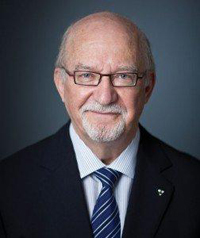A $100 million, five-year provincial funding initiative provided to the Ontario Brain Institute (OBI) for research into neurological disorders, including epilepsy, Alzheimer’s disease, cerebral palsy, depression and autism, will help position the province as a worldwide brain-research leader, says Dr. Donald Stuss.

Stuss, OBI’s president and scientific director, says what makes this funding exceptional is that it will help further several ongoing neurological research projects that will “break down the silos between diseases” so they can be better understood.
This is unique, he says, because the research provided through the funding is helping enhance the way we understand epilepsy and other neurological diseases and the connections between them.
For example, a scientist involved with the project who is studying protein differences in epilepsy will be able to provide a standardized approach that researchers studying other diseases can adopt.
“Everybody will be gathering data in a standardized way, so that (researchers) will be able to study the mechanisms, comparisons and genetics (involved) in the unfolding of a disease,” Stuss tells Voices of Epilepsy.
“What we’re going to have is a transformed system of brain research that’s going to be at the leading edge of most places in the world.”
The result the scientists involved with the research are aiming for is to have a large platform of information on neurological disorders that can be compared with one another, says Stuss.
“What we have is the potential to truly start to dig down on the multiple factors that are key to the expression of a disorder,” he says.
“What we’re doing is probably broader in its scope and more in depth than most other places. We’re going to have increased improved treatments for virtually every (neurological) disorder, and those are going to come from the research projects that we’re doing.”
Stuss says it’s also beneficial to have the funding allocated over a five-year period because researchers will now have the resources to keep up to date with the latest scientific advances related to their area of study.
“People can say, ‘this has just popped up, let’s go after it,’ ” says Stuss. “When you have a grant, that’s a little harder to do.”
OBI issued research grants for more than 20 areas related to seizure disorders last spring. These include research into new medications, breakthrough diets and brain stimulation.
If you have feedback on this story, or have a story of your own that you would like to share, please contact the newsroom at 800-294-0051, ext. 23, or e-mail deron(at)axiomnews.ca. You can also leave a comment below.
* If you wish to reprint this story, please include following notice: “This story originally appeared on the Epilepsy Ontario website.”
Writer: Deron Hamel






